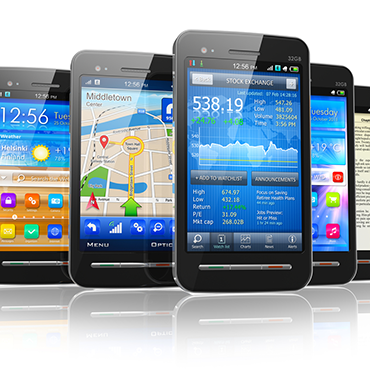Why DOD needs a mobile upgrade
A new report from the Center for a New American Security argues the Pentagon needs to ditch its risk-averse culture and procurement procedures and embrace next-generation mobile technology.

What: "Leveraging Commercial Technology, Early Adoption of Emerging Mobility in the Pentagon," a new report from the Center for a New American Security
Why: Handheld mobile devices are increasingly powerful, flexible and secure and offer performance benefits that could increase security, facilitate workforce mobility and help the Pentagon modernize and replace aging legacy systems. But in a new report, authors Ben FitzGerald and Alexandra Sander argue the current policies and risk-averse culture within the Department of Defense mean that DOD could miss the opportunity to leverage the power of mobile devices.
The DOD continues to be hampered by slow and cumbersome procurement systems that make it difficult to acquire new technology while it is still current. In addition, DOD shies away from commercial off-the-shelf products largely out of concerns over standardization and device security. As a result the report argues, the DOD clings to outdated devices and systems like the Blackberry because they are known and met old requirements that have long been passed over by advances in technology.
The authors contend that mobile devices, especially coming generations, have the ability to replace static devices like the Common Access Card (CAC) with flexible multi-factor authentication. In addition, hardware-based security and Virtual Private Networks can effectively secure data-in-motion and data-at-rest on mobile devices.
The authors state that organizations that employ mobile technology increase productivity and efficiency through greater workforce mobility. They argue the DOD can further benefit by the ability of mobile devices to safely connect to secure networks remotely instead of having to be physically in specialized hard-wired locations either inside the Pentagon or other sites.
The report also contends DOD could benefit from transitioning from a corporate-owned business-only model of mobile devices to a bring-your-own-device policy. This long-term DOD objective would not require a large procurement program and it would also allow workers to use devices and operating systems they are familiar with as opposed to standardized DOD devices.
The authors argue DOD should start with a small-scale COBO pilot program to issue commercial devices to employees to verify the efficacy of the technology as a first step towards a BYOD model. By adopting next-generation mobile technology inside the Pentagon, the authors contend that will help DOD determine how to deploy mobile technology in more sensitive settings.
Verbatim: "There is always some level of risk within the field of information technology, and next-generation mobile devices will not be without weaknesses. Yet, given the advances in mobile computing and the capabilities of near future devices, DOD will face greater risks from failing to leverage leading-edge technology than from mobile devices themselves."
Click here to read the full report.
NEXT STORY: No Agency Gets an A in Latest FITARA Scorecard





